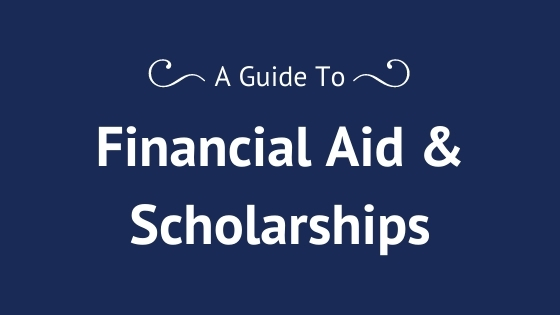With the cost to attend college rising remarkably over time, many families are wondering how they will pay for college. The purpose of this guide is to introduce and explain the various financial resources available for students and families when trying to pay for college.
We’ll go over sources of aid, and how you can apply to them. For an overview of how to apply for financial aid strategically, see our article on financial aid strategy.
Federal Aid
The Free Application for Federal Student Aid (FAFSA) is the backbone of financial aid for colleges. It determines whether students are eligible for federal aid when paying for college, allows them to sign up for loans, and is used by most schools to determine students’ eligibility for in-house financial aid.
FAFSA requires two years of tax information, but can import this directly from the IRS if you input your tax ID number. This information must be input and updated every year you attend college.
Most students will not be eligible for federal aid. The most common form of aid provided is the Pell Grant, which goes to first time students with the most financial need, and provides up to $6,345 per year, which can go towards tuition or school-related costs.
Much more common in awards is Federal Work-Study, where students are given jobs at a university to earn money for cost of living expenses while in college, subsidized by the federal government. Colleges offer a wide variety of work-study opportunities, and most have offices to help connect students with them.
Students who were involved in the military, or who are planning on a career in the military, have additional financial aid opportunities. These include the Reserve Officer Training Corps (ROTC), which prepares students to be officers while they complete an undergraduate degree.
Students studying foreign languages and cultures of interest to the US State Department may be eligible to apply for the Foreign Language and Area Studies (FLAS) grant. This provides money for tuition along with separate funds for cost of living expenses. It is available to graduate and undergraduate students.
State Aid
Some states have separate financial aid programs, and all states offer reduced tuition for in-state students attending state-funded universities. State aid has much more variance than federal aid, and what opportunities are available to you depend entirely on your state of residence.
Of note here is that many states have been cutting funding to public universities, causing those universities to increase tuition rates in order to remain solvent. While some states are trying to reverse this trend, others are not. While public universities generally remain far less expensive than their private counterparts, the gap is narrowing.
Loans
The federal government offers student loans to help students pay for college. These loans are guaranteed by the government, and unlike normal loans, cannot be written off by a declaration of bankruptcy.
Students do not need to begin repayment of their loans while in school, however interest will begin to accumulate as soon as the loans are dispensed, so any payments made while in school can be helpful, as the interest is compounding.
Students must complete the FAFSA to be eligible for loans from the federal government. While some private entities also offer loans, we recommend only borrowing from the government to pay tuition costs, as interest rates are more carefully regulated for federal loans.
Aid From Colleges
Colleges themselves offer aid to students in a number of forms. Most schools require students fill out both FAFSA and the CSS profile in order to be considered for aid. Some schools have additional application requirements, and you should check the website of schools you are applying to directly to ensure they don’t have their own way of doing things. For additional advice on college-specific requirements, see our guide to school-specific scholarships.
Colleges offer need based aid, and merit aid. Need based aid, as the name suggests, is offered to students who would otherwise be unable to afford the school’s tuition. Merit aid is offered to students due to their talents or abilities; usually academic, but sometimes athletic or artistic.
Need based aid will fill whatever amount of tuition the student and their family is unable to pay. Merit aid can be a set amount, and often depends on the particular school and scholarship. Offerings for merit aid can range from a few thousand dollars to the entire cost of tuition.
Top colleges frequently have more generous financial aid offers, as they have larger endowments and less need for tuition. The more a school depends on tuition for funding, the less generous they will be with financial aid. The most prestigious schools tend to primarily offer need-based aid, with the Ivy League explicitly banning merit aid for students. Less prestigious schools, in contrast, primarily offer merit aid, in an attempt to attract high achieving students who might otherwise attend more prestigious schools. For more information, see our article on the Ivy League’s financial aid policies.
Some schools are need-blind, meaning they don’t take a student’s ability to pay into account when making admissions decisions. Other schools are need aware. A number of schools with the largest endowments are committed to meeting 100% of demonstrated financial need for students. For a list of these schools, see our article on the subject.
Outside Scholarships
Other entities also offer aid to students, in the form of grants or scholarships. These must be applied to, and many have strict requirements for awarding funds. What scholarships you qualify for can vary widely, the more research you do the more you will be able to find. Most of these scholarships are small, but can still contribute to the costs of tuition or living expenses.
Many large companies offer some form of scholarships for their employees’ children, and most colleges and universities do the same. This is something to discuss with your parents.
Your school counselor will know about scholarship opportunities located locally. Be careful when searching for scholarships online, as not everyone is honest. Anywhere charging a fee to apply for a scholarship should not be trusted.
Reducing Costs
Another way to help in paying for college is to reduce how much you need to pay. This requires some strategy when applying to colleges and choosing which you will attend.
The first thing to note is that in-state tuition for public colleges is much lower than out-of-state, and you should decide whether or not it is worth it to pay out-of-state rates. While some state schools are better than others, the flagship campus of a state’s university system is always a respectable choice for a college experience.
The best way to get merit scholarships for one of these schools is to be accepted into their honors program. Many honors colleges at state schools try to emulate smaller liberal arts colleges, and offer some of the best merit aid.
If you want to attend a private school, determine what aid they offer, and how likely you are to receive it. The larger a school’s endowment, the more generous it will be with aid. The most generous schools are also among the hardest to get into, so gaining admission to them should never be taken as a guarantee or be a key factor in your college application plans.
If you struggled in high school, consider beginning your college experience at a community college, and once you’ve completed two years there, transferring to another school. Community colleges are far cheaper, and most state schools have dedicated tracks for helping students from community colleges transfer in. This is an especially good choice if your grades were lower than you preferred in high school, as many colleges only care about college grades for transfer students.
Finally, living off-campus is generally cheaper than living in dorms, unless your financial aid package includes housing expenses. While campus meal plans are convenient, cooking for yourself is much cheaper. While some schools require students to live on campus for some or most of their time there, others are more lax.
For more specific advice on saving for college efficiently, see our guide to saving for college.
Final Thoughts
College is expensive, and many students are questioning whether it is worth the cost. We hold that it usually is, if you manage your time and resources well. We hope this guide provided some insight into how students can pay for college, and how they can also reduce the costs they incur.
This guide is aimed primarily at domestic students; international students should instead refer to this article, as colleges aim most of their aid, both need and merit based, at domestic students.
The entire process of applying to and figuring out how to pay for college can be very stressful. At Ivy Scholars, we have a team of experts who understand every aspect of preparing for and applying to college, and who can reduce the stress that rests on you. Don’t hesitate to schedule a free consultation if you have any further questions pressing on your mind.








